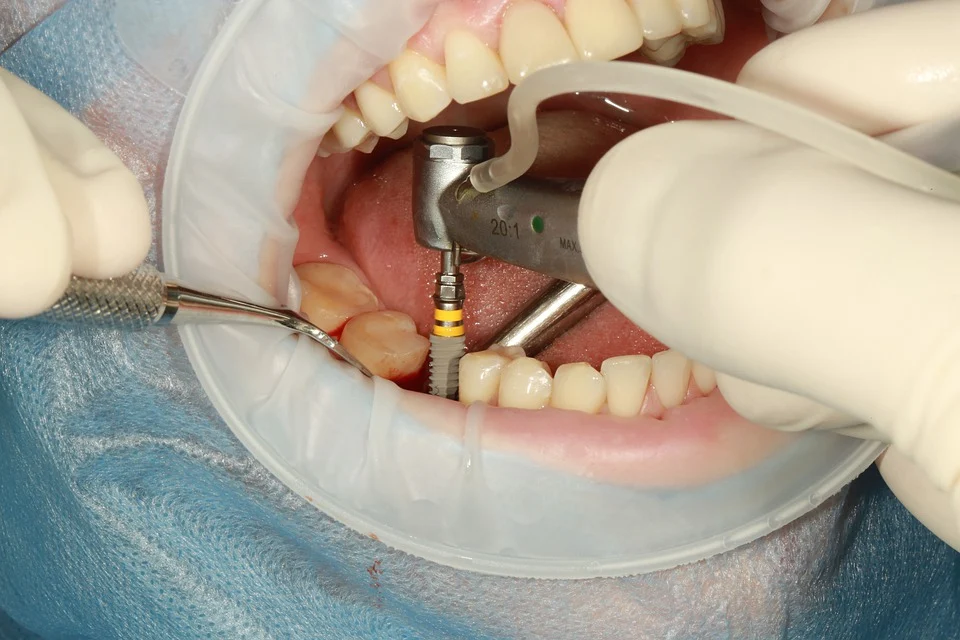A missing tooth can ruin your smile, but you have options to fix this problem. Dental implants are one of the best solutions because they are permanent and very natural-looking, but they require you to replace a few teeth to support them correctly. Here are four reasons you should replace missing teeth with dental implants.
Reason #1. To Prevent Bone Loss
Bone loss is inevitable in the jawbone, but as we age and lose teeth, this process speeds up. When a tooth is lost, the bone begins to shrink and collapse. This can lead to many dental problems like gum disease and poor oral hygiene because brushing your teeth correctly with only one or two teeth becomes difficult. It also leads to loss of taste buds due to the inability of saliva from other areas of the mouth to reach these spots. Lastly, it would be best if you replace missing teeth not only for aesthetic reasons but also because it will affect your health.
Dental implants create an artificial root, stimulating your jawbone and keeping it healthy while providing you with a natural-looking smile. The implant procedure is minimally invasive and all it takes is a few office visits over a span of months.
Implants are placed directly in the jawbone and over time actually fuse with the bone to create a secure foundation for prosthetic teeth. This prevents bone loss from occurring where the tooth is missing, because jawbone requires constant stimulation from daily activities like eating and chewing in order to remain strong.
During that time your new implant will fuse directly with your jawbone, creating a strong and long-lasting structure to restore your smile.
Reason #2. To Maintain an Even Bite
Maintaining an even bite is one of the main benefits of dental implants, but that’s not all. Even bites are essential for a healthy diet and overall oral health. Reports show that uneven bites can lead to temporomandibular joint disorders (TMJ), which cause pain in the jaw joint and muscles, difficulty chewing, and other mouth problems.
In addition, the constant pressure applied by an uneven bite can cause wear on your teeth and gums, leading to tooth decay or gum disease. By replacing missing teeth with dental implants, you can help maintain your balanced bite. Moreover, dental implant treatment could be the answer if you suffer from TMJ due to an uneven bite.
Reason #3. To Prevent Overgrowth of Opposing Teeth
An even bite helps ensure you can comfortably eat and chew on all sides, and that other teeth in your mouth aren’t shifted or damaged when compensating for a missing tooth.
Without dental implants, there may be issues during eating due to the difference in force from one side of the jaw to another; this can also cause issues with clenching and grinding – activities that can lead to further tooth damage over time.
Dental implants support a balanced force, preventing further consequence caused by missing teeth.
Missing teeth can lead to overgrowth of opposing teeth and cause problems like crowding and a misaligned bite. If you have a missing tooth, it’s important to replace it as soon as possible. This will help avoid more serious issues from occurring later on in life. Without the missing teeth or dental implants, an opposing tooth may erupt into the empty space created by losing a neighboring tooth and either overlap or push out another tooth. When these things happen, your jawbone starts to deteriorate due to lack of use which leads to bone deterioration which can make chewing difficult.
Reason #4) To Retain Function
Once a tooth is lost, the remaining teeth will slowly move into the gap created from its absence and create problems such as increased wear on biting surfaces, gum recession, and unfavorable alignment of the jaw.
Dental implants serve as a replacement root for the missing tooth, creating stability for other structures in the mouth, which helps to keep them in their proper position. Investing in dental implants now can save you an enormous amount of trouble down the road in terms of cavities, costly restorations or even more extensive treatments such as full mouth rehabs.
Missing teeth can affect the health of your mouth and overall well-being. When you don’t have teeth, it can become difficult to chew food and keep your teeth clean. The lack of chewing ability can cause misalignment of your remaining teeth, and bacteria from improper dental hygiene can lead to gum disease or tooth decay. Dental implants allow you to eat anything confidently and maintain a healthy mouth. In addition to replacing missing teeth, dental implants are usually covered by insurance, so this is an affordable option for those looking for a permanent solution.
In Essence
Dental implants offer superior stability compared to dentures or bridges, allowing for the replacement teeth to feel and act just like natural teeth. Implants also remove the need for potentially harmful adhesives needed for traditional prosthetics.
Eating remains a pleasure with implants keeping food from becoming trapped in hard-to-reach spots or slipping around during meals – both problems common with other tooth replacement methods. Also, as they are anchored into the jawbone, they help preserve bone health while enabling return of mouth muscle control commonly lost with missing teeth to give confidence in speaking and smiling.
Dental implants are a great way to replace missing teeth and improve oral health. As technology improves, dental implant procedures have become safer and less invasive. Dentists can now place dental implants without having to extract the healthy tooth or teeth that remain in your mouth. There is an easier recovery time, which means you can chew food normally after only a few days instead of waiting weeks or months like before.
